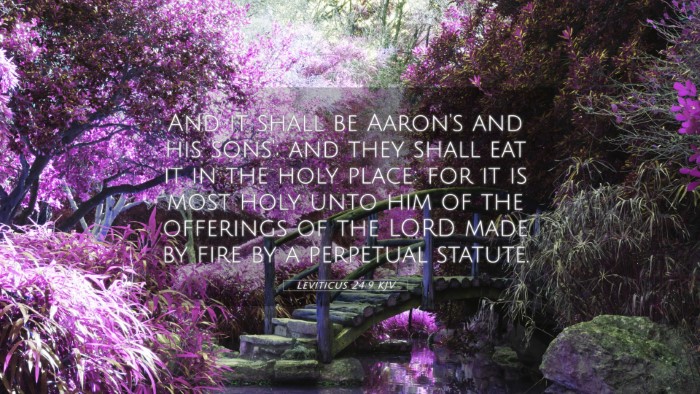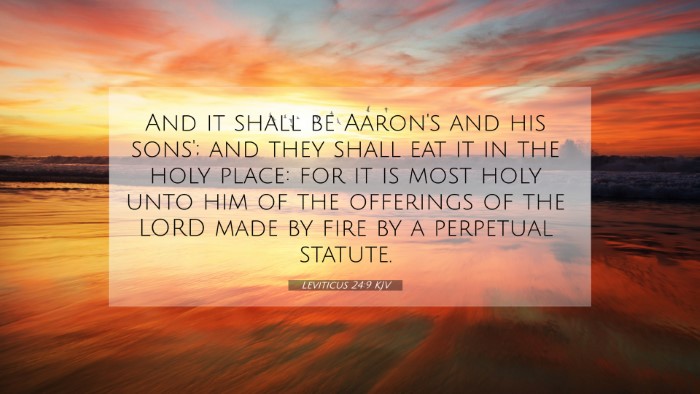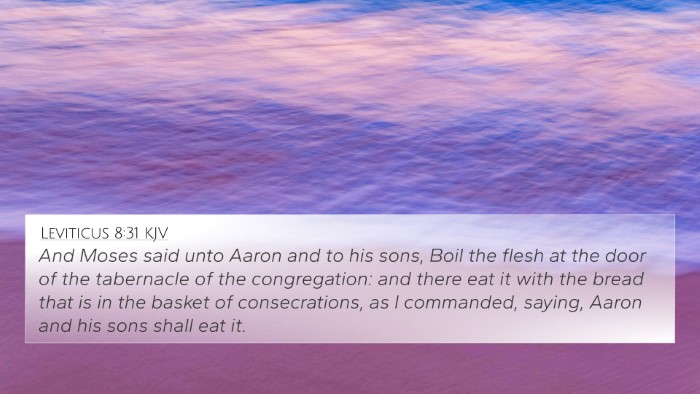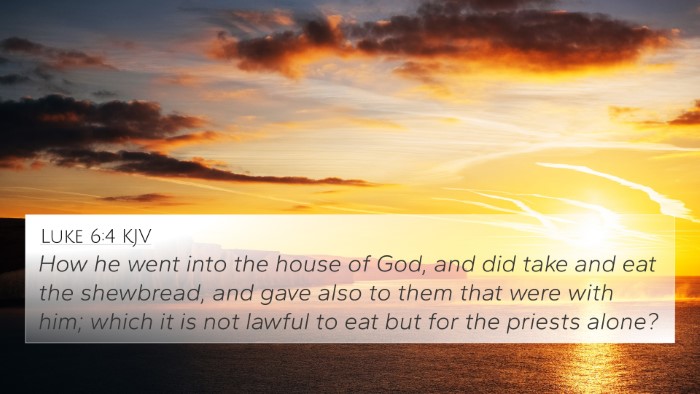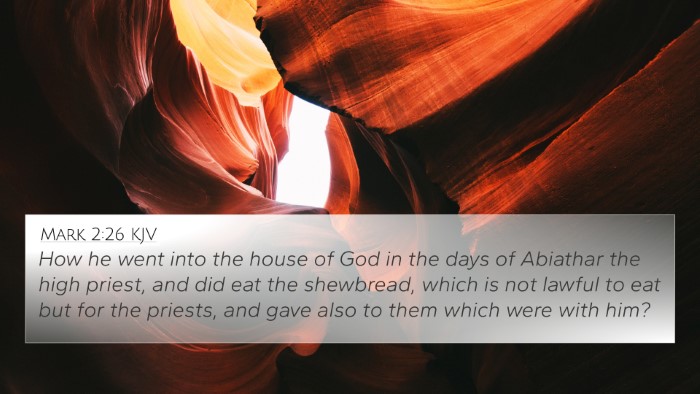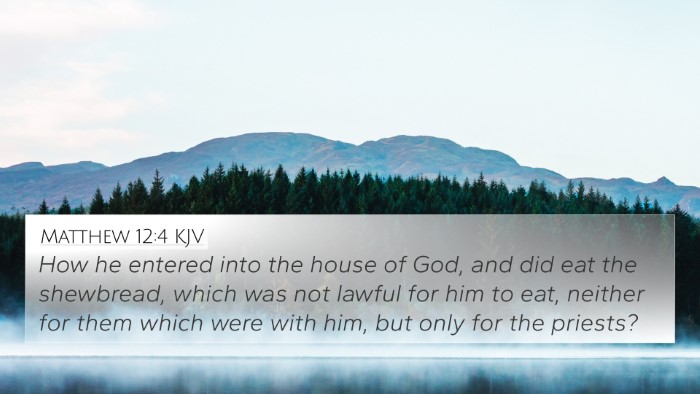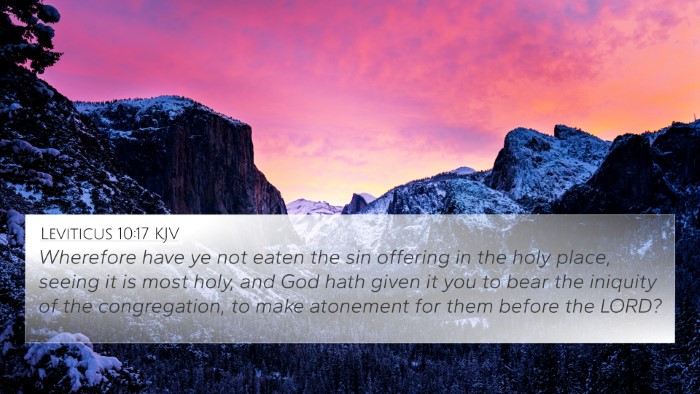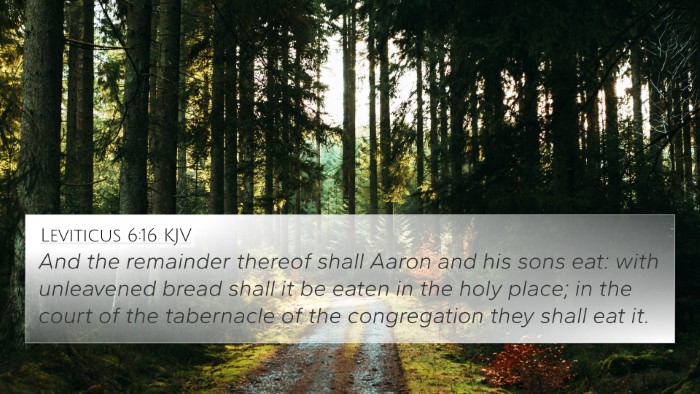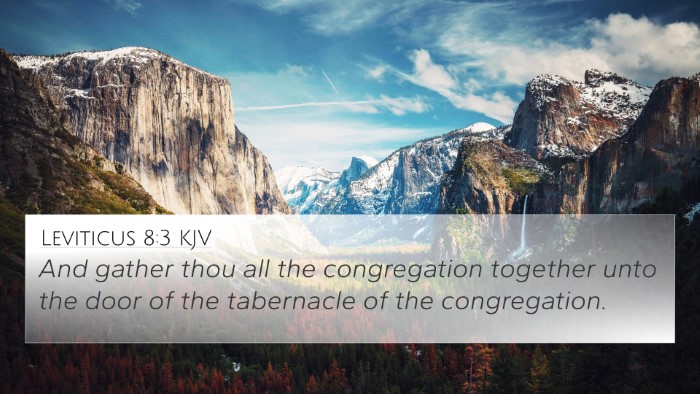Summary of Leviticus 24:9
Leviticus 24:9 states: "And it shall be for Aaron and his sons; and they shall eat it in the holy place: for it is most holy unto him of the offerings of the Lord made by fire by a perpetual statute." This verse speaks to the priestly privileges and responsibilities regarding the showbread, emphasizing the sanctity and holiness associated with the offerings unto God.
Context and Cultural Importance
Matthew Henry's Commentary: Henry notes that the provision for the priests serves not only in a functional role but also symbolizes the idea of divine sustenance for those who are dedicated to the service of the Lord. The act of eating the showbread signifies communion with God and acknowledgment of His continued provision.
Albert Barnes' Commentary: Barnes emphasizes that the usage of the term "most holy" stresses the seriousness with which these offerings must be regarded. The priests are entrusted with responsibilities that require them to uphold the sanctity of the worship practices, reflecting the importance of ritual purity and divine order.
Adam Clarke's Commentary: Clarke elaborates on the significance of this statute, noting that it was crucial for Aaron and his sons to consume the bread in a holy place as a constant reminder of their mediatory role between God and the people of Israel. This act not only fulfills their responsibilities as priests but also underscores the sacred nature of their vocation.
Key Themes in Leviticus 24:9
- The sanctity of offerings to God
- The provision and nourishment from God for His servants
- The role of priests in mediating between God and Israel
- The perpetual statutes that govern worship and service
Bible Cross-References
- Exodus 29:32-33 - Discusses meals as part of the consecration of priests.
- Numbers 18:10 - Highlights provisions for the priests regarding what they can eat.
- 1 Chronicles 9:32 - Refers to the duties of the Levites and the showbread.
- Matthew 12:4 - Jesus references David eating the showbread, linking to His authority.
- Hebrews 9:6-7 - Mentions the priestly service and the holy place.
- Romans 12:1 - The concept of offering ourselves, paralleling priestly duties.
- 1 Peter 2:5 - Believers are now a royal priesthood, connecting the priesthood with spiritual offerings.
Connections Between Bible Verses
The understanding of Leviticus 24:9 invites an exploration of the broader theme of priestly duties and the offerings made to God throughout Scripture. The interconnectedness of the verses strengthens the thematic dialogue and aligns with the principles of worship and sacrifice that permeate the Bible.
Scriptural Cross-Referencing
In exploring the theme of food offered in a holy context, the links between Old and New Testament teachings become apparent. For instance, the transition from Old Testament rituals to New Testament grace as highlighted in John 6:35 ("I am the bread of life") demonstrates how Christ embodies the ultimate fulfillment of these holy provisions.
How This Can Aid Bible Study
Understanding Leviticus 24:9 through comparative analysis with other Biblical texts enhances one's grasp of scripture. Using tools such as a bible concordance, students can locate similar themes, enabling effective sermon preparation and deeper scriptural insights.
Overall Interpretation
Through an in-depth interpretation of Leviticus 24:9, we see the convergence of physical sustenance provided by God and the spiritual implications of maintaining holiness in worship. The transitions from the Old Covenant practices to New Testament revelations provide a rich tapestry for understanding divine provision, priestly roles, and worship.

